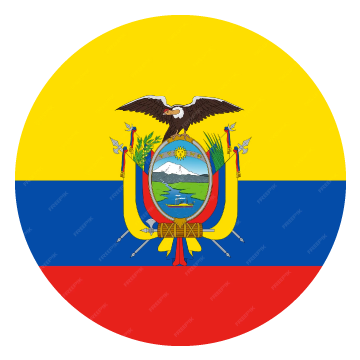Danny has 22 years of experience in the management and administration of Galápagos’ terrestrial and marine protected areas. During this time, he has been involved in various programs and projects focused on conserving native and endemic species, controlling and eradicating introduced species, ecological monitoring of island and marine ecosystems, control and surveillance, ecotourism, applied research, sustainable use of environmental services, and fisheries management. Additionally, he served as General Director of the Galápagos National Park Directorate for four years.
He was part of the technical team responsible for developing the Galápagos National Park Management Plan (2005) and the Galápagos Protected Areas Management Plan for Good Living (2014). He also served as Technical Coordinator for the new Zoning System of Galápagos Protected Areas (2016), spearheaded the process for the expansion and re-designation of Galápagos as a Biosphere Reserve (2019), and contributed to the development of the Hermandad Marine Reserve Management Plan (2023). Furthermore, he led the preparation of the dossiers for the designation of the Hermandad Marine Reserve as a UNESCO Natural World Heritage Site and Biosphere Reserve (2024).
Danny holds a degree in Agricultural Engineering with a specialization in Socioeconomic Development and Environment, as well as a Master’s in Planning and Strategic Management. His academic, professional, and work experience is deeply tied to his commitment to the conservation and sustainable development of the Galápagos Islands.
Paulina CouenbergPaulina is a experienced professional with 25 years of experience in international cooperation and project management. Since moving to the Galápagos in 2007, she has contributed extensively to the conservation of the islands’ unique biodiversity through her work with the Charles Darwin Foundation and the Galápagos National Park Directorate, where she played a key role in advancing terrestrial and marine conservation and research projects.
During her time with the Ministry of Agriculture and Livestock (MAG) in the Galápagos, Paulina led initiatives to promote sustainable agricultural practices aligned with conservation goals, fostering collaborations with NGOs and universities. She also represented MAG on the Invasive Species Committee of the Galápagos Fund for the Control of Invasive Species (FEIG), helping shape strategies to protect the islands’ ecosystems.
Earlier in her career, Paulina worked with the UN Food and Agriculture Organization (FAO), where she managed and monitored field projects across Latin America. Paulina holds a Master’s degree in Agriculture and Natural Environment and is deeply committed to supporting both the natural heritage of the Galápagos and the well-being of its community.
Gabriela Ayala CamachoGabriela is an Environmental Management professional from UTPL with extensive training in sustainability, climate change, and urban development. She holds a Master’s in Environmental Sustainability for Local and Territorial Development from the University of Castilla-La Mancha (Spain) and has specialized in climate change adaptation (CATIE), leadership in sustainable cities (FLACSO Ecuador), and international cooperation (University of Santiago de Guayaquil).
Her connection to nature began at an early age, growing up and receiving part of her formal education in the Galápagos Islands—a unique environment that inspired her commitment to conservation and sustainable development. Gabriela has academic research experience and has contributed to projects in territorial planning, climate management, and sustainable development, excelling in implementing adaptive and innovative solutions to environmental challenges.
In her professional career, she has worked in technical and environmental management roles for the Municipality of San Cristóbal and the Galápagos Special Regime Council. In these capacities, she served as the focal point for flagship projects such as the Strategic Plan for the Development of the Blue Economy in Galápagos 2025-2040, focused on the sustainable management of marine resources, and the Living Lab for Sustainable Building Project, an innovative energy efficiency model that has transformed key infrastructure in the islands.
Her work is characterized by an ethical, committed, and results-oriented approach, aiming to create a positive and sustainable impact on both the communities and ecosystems of the Galápagos. These qualities underpin her role as Program Officer at the Galápagos Life Fund, where she drives key initiatives for conservation and sustainable development in the archipelago.


